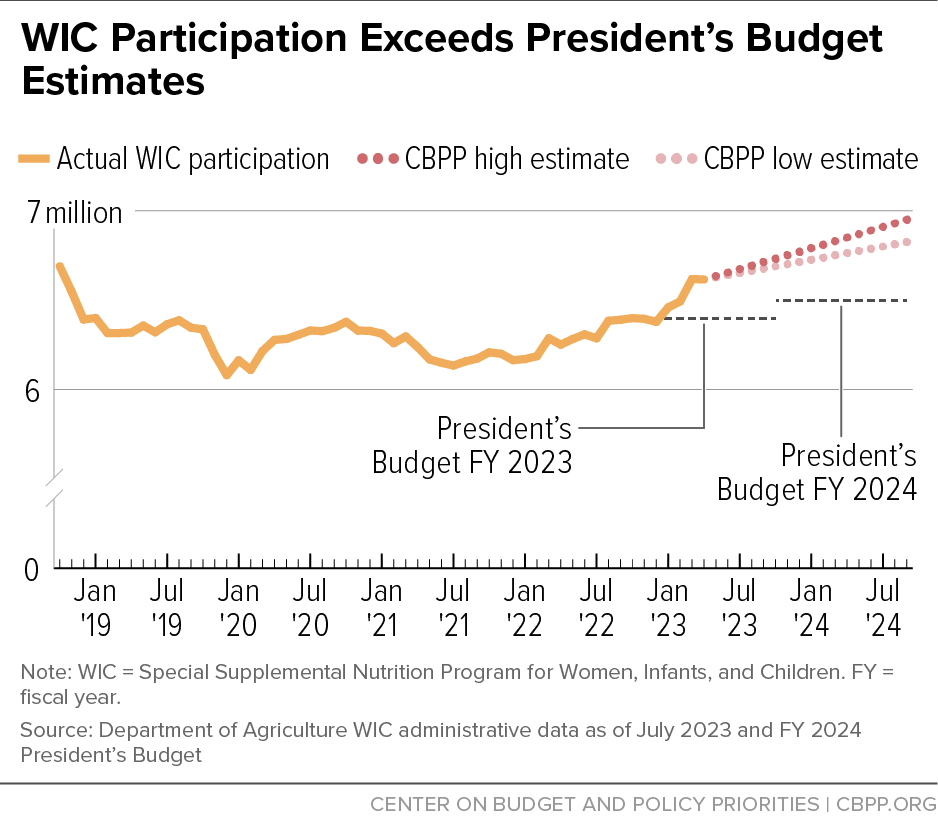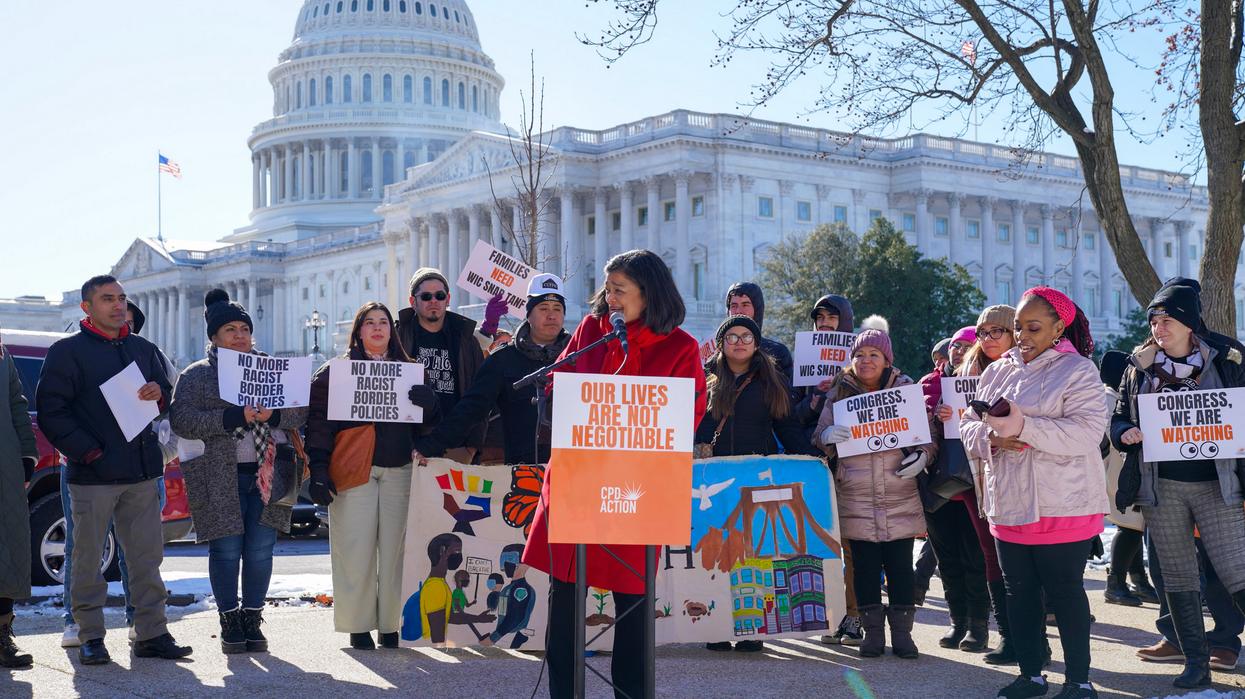Under the GOP's austerity bill, an additional 4.6 million young children and pregnant, postpartum, and breastfeeding WIC participants would see their benefits reduced substantially.
The Senate's bipartisan FY2024 agriculture appropriations bill contains higher funding levels, meaning that current WIC enrollees would continue to receive the same amount of nutrition assistance they do now. However, the upper chamber's proposal is also inadequate relative to growing needs and would force states to spurn 700,000 to 800,000 WIC applicants.
As CBPP noted: "WIC provides critical nutrition benefits, breastfeeding support, and other vital services to low-income pregnant and postpartum people, infants, and young children under age 5 who are at nutritional risk. In recognition of WIC's positive impacts on health and developmental outcomes, policymakers have adhered to a bipartisan commitment for more than 25 years to provide the program sufficient funding to serve all eligible applicants."
"To maintain this commitment and provide full benefits, WIC will need $7.2 to $7.3 billion next fiscal year," CBPP continued. "That is $900 million to $1 billion above [President Joe Biden's] budget request and the amount in the Senate's appropriations bill, and $1.7 billion to $1.8 billion above the level provided in the House bill."

"Time is of the essence," CBPP added. "States need more money at the start of the fiscal year, along with an assurance that full-year funding will be adequate, or they may well start taking steps to cut enrollment even before final funding levels are settled for the year."
In 2021, Congress increased WIC's fruit and vegetable benefits to cover 50% of the recommended daily intake.
In a Common Dreams opinion piece published Wednesday, Sarah Manasrah, a member of the National WIC Association Participant Advisory Council and an advocate with ParentsTogether, described that change as "hands down the most valuable part of WIC for my family."
"Between my always on-the-move baby, my 4-year-old, and my appetite as a breastfeeding mom, we devour fresh fruits and veggies as fast as we buy them," wrote Manasrah. "But they're incredibly expensive—I see grocery prices skyrocketing and I'm not just imagining things. According to the U.S. Department of Agriculture, the price of food rose by 11.4% last year. At the same time, greedy corporate giants like Kroger, Walmart, and Tyson are making record profits and shareholder payouts."
Manasrah lamented that House Republicans' proposal would "massively cut the WIC cash value benefit for fruits and vegetables to only $11 per month for child participants, $13 per month for pregnant and postpartum participants, and $15 per month for breastfeeding participants. This amounts to more than a 50% cut for children and an approximately 70% cut for adult participants—that's barely enough to buy a carton of strawberries or blueberries!"
"Losing the critical fruits and veggies benefit would put a huge strain on our budget, not to mention increase my stress level as a busy working parent. And I know I'm not alone," she continued. "Every day I hear from parents who confirm what I know firsthand—without WIC, pregnancy and those rough first years postpartum would be almost impossible. A recent survey of ParentsTogether members revealed that without this vital program, 64% of WIC recipients would have been unable to afford necessary formula to feed their infants, 52% would have been unable to afford enough food for themselves, and 75% would not have been able to purchase the nutritious foods they needed."
Manasrah stressed that "we can't go back in time by letting even more families and babies in need go hungry! As a grateful WIC mom, I implore Congress to act now to ensure WIC receives the full funding it needs to continue being a safety net to millions of struggling parents, babies, and children."
By comparison, Biden and Congress are pushing for $886 billion in military spending for the coming fiscal year. Earlier this week, Sen. Bernie Sanders (I-Vt.) explained why he intends to vote against legislation that would greenlight such a gargantuan Pentagon budget.
"As a nation, the time is long overdue for fundamental changes to our national priorities," Sanders (I-Vt.) wrote in an op-ed for The Guardian. "Cutting military spending is a good first step."
Sanders recently introduced an amendment to the National Defense Authorization Act that would reduce U.S. military spending by 10%. Doing so would free up nearly $90 billion that could be used to tackle the U.S. hunger crisis afflicting more than 34 million people and ramp up investments in healthcare, education, housing, and clean energy, among other priorities.





